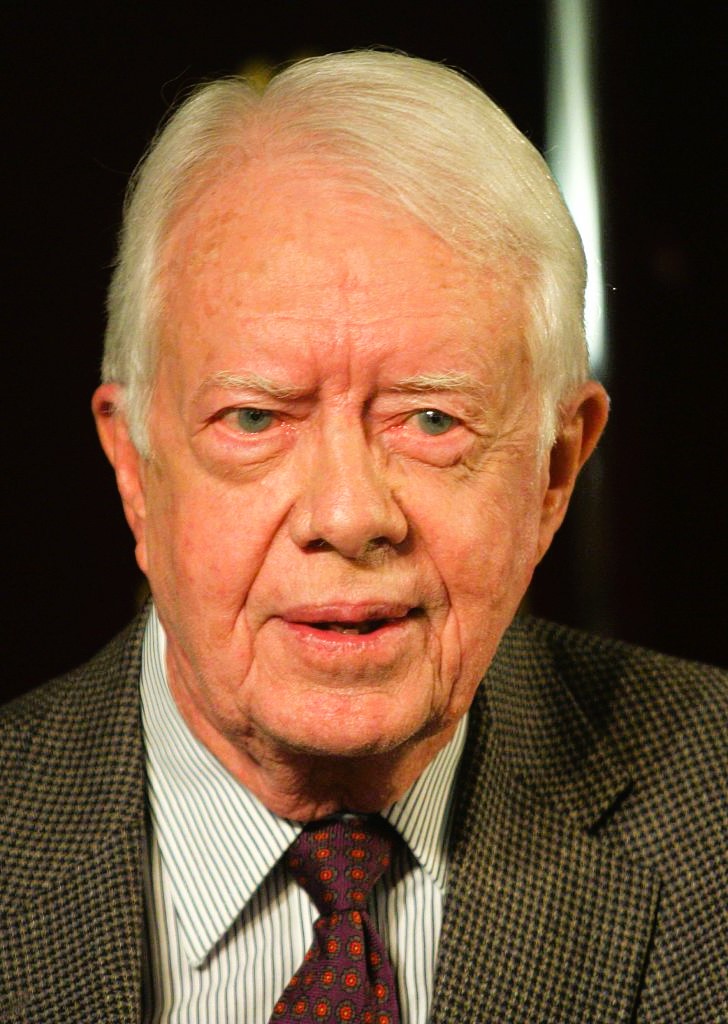
On October 1, 2024, Jimmy Carter, the 39th president of the United States, celebrated his 100th birthday, becoming the longest-living president in U.S. history. Throughout his life, Carter has been a symbol of resilience, integrity, and a dedication to humanitarian causes. From his time as a farmer in Georgia to his years in the White House and his post-presidency work, Carter’s life reflects an unwavering commitment to public service.
Early Life and Political Beginnings
James Earl “Jimmy” Carter Jr. was born in Plains, Georgia, in 1924, during a period of significant change in the U.S. His upbringing on a peanut farm instilled in him the values of hard work, humility, and a deep connection to the rural American experience. After attending the U.S. Naval Academy, Carter served in the Navy, where he gained technical knowledge that would shape his career.
In 1953, following his father’s death, Carter left the Navy to manage the family’s peanut farm. It was during this time that he became involved in local politics, eventually rising to the position of state senator and then governor of Georgia. As governor, Carter gained national recognition for his focus on civil rights, advocating for desegregation and progressive reforms during a time when the South was still deeply segregated.
The Road to the White House
In 1976, Jimmy Carter launched a presidential campaign that was initially considered a long shot. He campaigned as an outsider, capitalizing on the public’s disillusionment with Washington politics following the Watergate scandal. With his folksy demeanor, strong moral compass, and promise to restore trust in government, Carter won the Democratic nomination and then the presidency, defeating incumbent Gerald Ford.
Carter’s presidency, from 1977 to 1981, was marked by significant challenges, including a struggling economy, high inflation, and an energy crisis. Despite these difficulties, Carter’s administration achieved several notable successes, particularly in foreign policy. One of his most enduring accomplishments was brokering the Camp David Accords in 1978, which led to a historic peace agreement between Egypt and Israel. This diplomatic breakthrough earned Carter widespread praise and established his legacy as a peacemaker.
However, Carter’s presidency was also marred by the Iranian hostage crisis, in which 52 Americans were held captive for 444 days. The prolonged crisis, along with economic struggles, contributed to his defeat in the 1980 election by Ronald Reagan.
Post-Presidency and Humanitarian Work
While Jimmy Carter’s time in office was brief, it was his post-presidential work that truly cemented his reputation as one of America’s most admired leaders. Following his departure from the White House, Jimmy Carter founded the Carter Center in 1982, a non-profit organization dedicated to promoting human rights, democracy, and global health initiatives.
The Carter Center has been instrumental in combating diseases like Guinea worm and river blindness, bringing public health improvements to some of the world’s poorest regions. Under Carter’s leadership, the Center also became a global force for peace and conflict resolution, monitoring elections in countries where democracy was fragile and advocating for the eradication of violence.
In 2002, Carter was awarded the Nobel Peace Prize for his decades of tireless work in promoting peace and human rights. He is one of only four U.S. presidents to receive this prestigious honor, joining the ranks of Theodore Roosevelt, Woodrow Wilson, and Barack Obama.
Legacy of a Peacemaker and Humanitarian
Jimmy Carter’s 100th birthday is more than just a celebration of longevity; it’s a recognition of his remarkable contributions to the world. Despite being out of office for over four decades, Carter has never stopped working to make a difference. Whether through his work with Habitat for Humanity, where he personally helped build homes for low-income families, or his efforts to mediate international disputes, Carter’s legacy is one of compassion and service.
Throughout his post-presidency, Carter remained deeply engaged in global affairs, offering his voice to issues ranging from human rights abuses to the environment. His focus on peace and diplomacy set him apart from many of his contemporaries, as he often took positions that prioritized long-term global stability over short-term political gain.
Carter’s personal life has also been an example of humility and commitment. His marriage to Rosalynn Jimmy Carter, which began in 1946, has been a cornerstone of his life, and the two have worked side by side in many of their humanitarian efforts. Their partnership, spanning over 75 years, has been a testament to their shared values and dedication to serving others.
Celebrating 100 Years of Jimmy Carter
As Jimmy Carter turns 100, tributes pour in from around the world, recognizing his contributions not only as a president but as a global humanitarian. In Plains, Georgia, where his journey began, celebrations are being held to honor the man who never forgot his roots. His centennial birthday offers an opportunity to reflect on a life that has touched millions.
Though health challenges have slowed him down in recent years, Jimmy Carter remains a revered figure, both in the United States and internationally. His enduring optimism, kindness, and dedication to peace serve as an inspiration to people of all ages.
Conclusion
Jimmy Carter’s 100th birthday marks a significant milestone in American history. From his work as a peanut farmer to his tenure as president and his profound impact on global humanitarian efforts, Carter’s life is one defined by service. As the world celebrates this remarkable leader, it is clear that his legacy will continue to influence future generations, embodying the values of compassion, justice, and peace.
